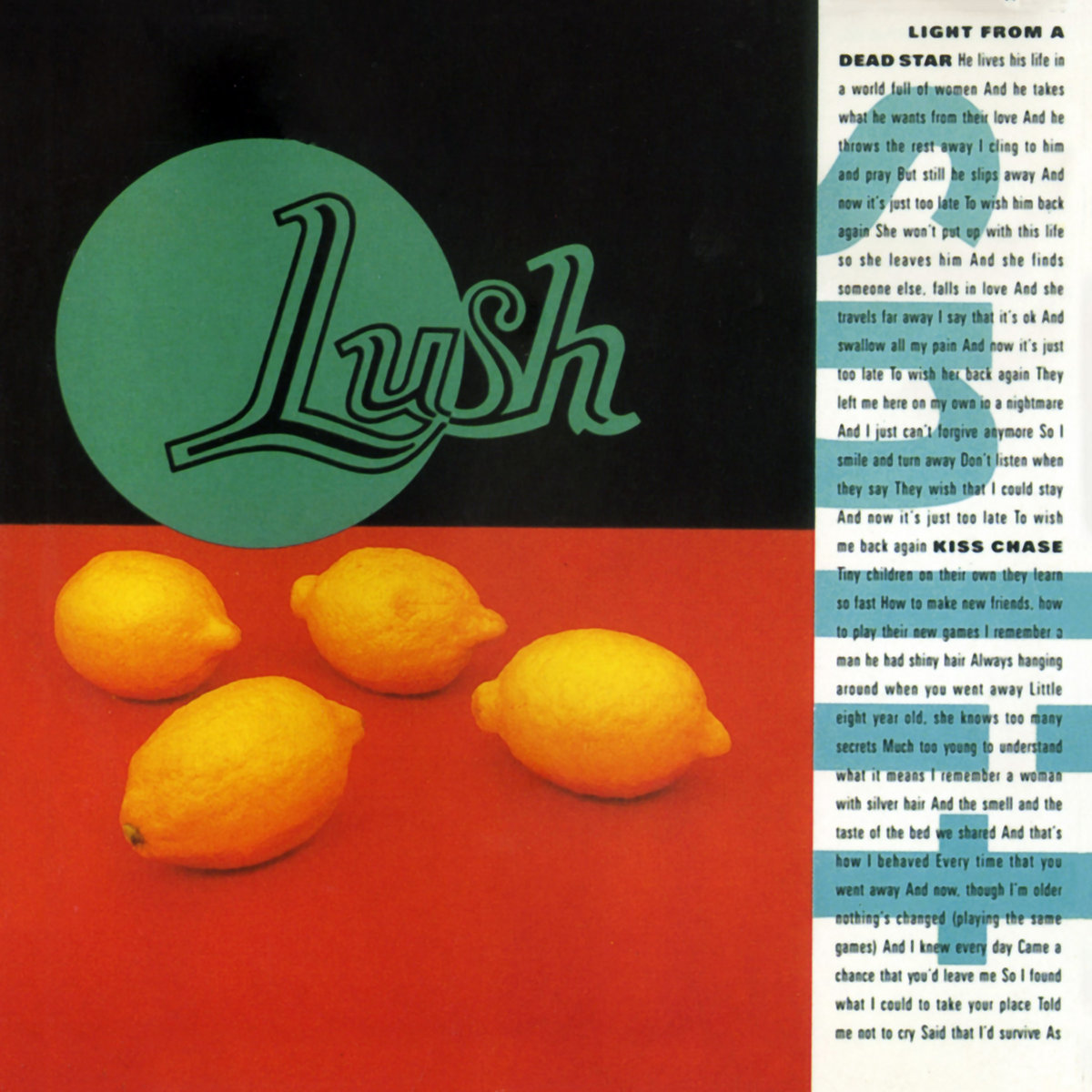Lush
Split [2023 Remaster]
4AD
London’s Lush was a shooting star of a shoegaze band, a twinkling oddity that released twice as many EPs as they did LPs between 1989 and 1996 (some consider their first release, Scar, a “mini-album”; the real heads know that’s just code for “extended play”). But while Lush’s career may seem tragic, remastered vinyl reissues of their three proper albums are a welcome look back into the telescope.
When 1992’s Spooky, 1994’s Split, and 1996’s Lovelife originally appeared in the 4AD catalog, “shoegaze” wasn’t bandied about as it is nowadays—at least not on this side of the pond. Thanks to the lasting power of My Bloody Valentine and Ride in particular, the word describing musicians who don’t make eye contact with their audiences and copiously coat their songs with guitar effects has stuck, for better or worse. Of course “shoegaze” can be construed as more than just a term of art. The type of performance it describes inherently calls to mind a type of musician incompatible with the era of social media: an introverted, shy, often self-doubting individual who fills a void of self-confidence with art that’s both soul-bearing and heart-wrenching.
Lush’s leaders, vocalist/guitarists Miki Berenyi and Emma Anderson, were practically peerless in matching that description. Split has—like Lush itself, one could argue—“tragic” written all over it, from first song “Light From a Dead Star” to album closer “When I Die.” Still, the listen is utterly majestic, glittering from start to finish. In fact, as 4AD reminds us, Split is one of the great unsung masterworks put to tape during the 1990s. The sound of shimmering guitars mixed with goosebump-inducing harmonic vocals hasn’t quite come back into vogue just yet. Then again, Halley’s Comet only visits Earth once every 75 years or so.
Split is also, irrefutably, a capital-A Album. The opening overture works wonders as a warm-up, employing strings and chimes to provide a soft entry point. “Kiss Chase” gently reels in the fishing line, leading to the hook-laden “Blackout” and “Hypocrite.” Anderson’s songwriting dominates the record, with sullen vocals sewn into long passages. The whispers that materialize throughout “The Invisible Man” and the soaring vocals on “Undertow” could even be considered a stylistic forerunner to Sigur Rós’ similar approach of using the human voice as an instrument. In the tradition of a well-rounded and creatively bold album, Split becomes more expansive as it progresses. “Never-Never,” for example, is an eight-minute composition that begs the question of whether Lush—filled out by bassist Phil King and drummer Chris Acland—maybe had more creative confidence than met the eye (and ears).
While Lush’s sound was undeniably distinctive, the 52-minute Split is superior to the albums that bookmarked it. Spooky is splashy, adventurous, and fun—pleasant to listen to, but hallmarks of a band that hadn’t yet found its identity. Lovelife (a song of the same name appears on Split, confusingly) is a chip-on-the-shoulder concept record about the frustrations of trying and failing to find a romantic partner, largely defined by four singles and a helping hand from Jarvis Cocker. As you may have guessed, those tunes felt like forced attempts at garnering more widespread appeal for Lush. The record’s real gem is the haunting ballad “Papasan,” which didn’t require them to sound like a falsified, radio-friendly version of themselves.
Lush’s greatest feat with Split may be that the record happened at all. Mired in the music industry equivalent of “development hell,” no less than seven engineers left their fingerprints on the album (iconic MBV and Ride collaborator Alan Moulder actually remixed the record). And yet, miraculously, Split is the quintessential Lush album, capturing the group’s alternatively whimsical and sulking spirit, framed with emotionally transformative songcraft. Remarkably, the record even crept onto the Billboard 200 albums chart, albeit at #195 (Lovelife peaked six slots higher). But even with those traces of potential mainstream appeal, Lush called it quits in 1996 after Acland committed suicide, to the band’s worst possible dismay.
There is a happy ending to Berenyi’s story, even if Lush’s legacy sorely deserves more attention (hence these reissues). After a short-lived reunion halfway through the last decade, which resulted in yet another EP, the leader of the again-defunct band formed a new group, Piroshka, in 2018. While two members of Piroshka had a cup of tea with Lush during said reunion, Berenyi deserves praise—almost as much as Lush itself, even—for retiring the moniker.
If only other bands that burned this brightly learned the lesson that cashing in this decade does, indeed, scrape the luster off memories of their yesteryears. Instead, they should learn a lesson here and let their musical achievements do the talking, trusting that time and some reissue help from a beloved record label will gel their place in history—even if not many people caught a glimpse of the spectacular phenomenon on the first pass.







